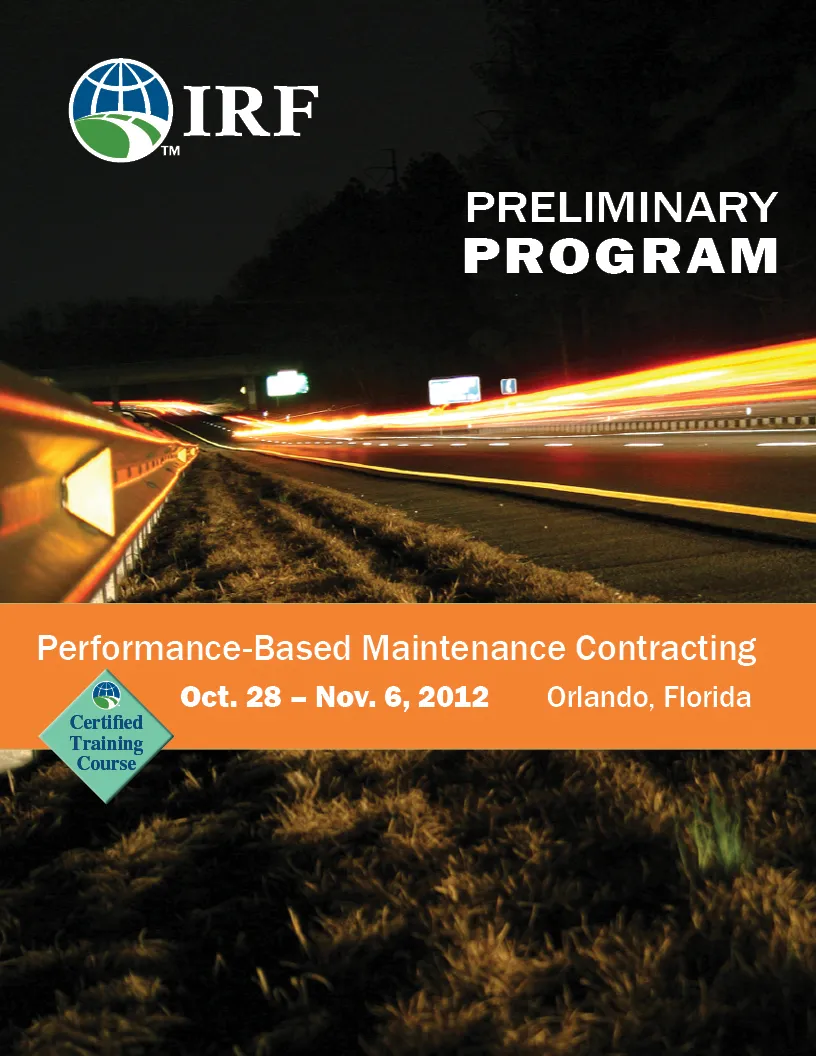At this time of tight public budgets, performance-based maintenance contracts are gaining traction internationally, with a growing number of transport agencies recognising it as an effective instrument for making investment decisions that minimise risk and lower operating costs of existing and newly constructed highway infrastructure.
However, a comprehensive survey conducted across 56 countries by IRF’s Asset Management Committee has revealed that progress is uneven. A majority of survey respondents indic
November 1, 2012
Read time: 2 mins

At this time of tight public budgets, performance-based maintenance contracts are gaining traction internationally, with a growing number of transport agencies recognising it as an effective instrument for making investment decisions
that minimise risk and lower operating costs of existing and newly constructed highway infrastructure.
However, a comprehensive survey conducted across 56 countries by3918 IRF Washington's Asset Management Committee has revealed that progress is uneven. A majority of survey respondents indicate that no centralised coordinating structure exists, few or no national knowledge resources are available, and asset management remains predominantly a manual task.
To address these gaps, participants from 16 countries participated on August 14-16 in the 3rd IRF Workshop on Performance-based Contracts & Evaluating Asset Condition held in Washington DC.
The workshop keynote address was provided by Kirk Steudle, director of2630 Michigan Department of Transportation and president of the 3510 American Association of State Highway and Transportation Officials (AASHTO). Other notable international attendees included Alfredo Tolentino, undersecretary of the 2569 Department of Public Works and Highways (Philippines); Kulwinder Rao, lead transport specialist at the 2332 World Bank; Moh Lali, executive director of 5811 Alberta Transportation (Canada); and Humberto Ibarolla, director of technical services, 2556 Ministry of Transport (Mexico).
that minimise risk and lower operating costs of existing and newly constructed highway infrastructure.
However, a comprehensive survey conducted across 56 countries by
To address these gaps, participants from 16 countries participated on August 14-16 in the 3rd IRF Workshop on Performance-based Contracts & Evaluating Asset Condition held in Washington DC.
The workshop keynote address was provided by Kirk Steudle, director of







